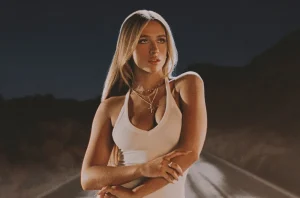Hong Kong and what we as individual consumers should do about it
The importance of standing up for freedom and human rights
Hong Kong protesters on the streets. The banner reads,”Peaceful gathering, CY Leung steps down, I want true universal suffrage.”
February 13, 2020
In the city of Hong Kong, as many as two million people are crowding the streets. Some are wearing masks. Some are throwing bricks. Many are chanting slogans in both English and Chinese. The protests were triggered when a bill proposed the extradition of certain criminals to mainland China. The bill has since been withdrawn, and the protests have changed to focus on Hong Kong’s relationship with mainland China in general.
The people of Hong Kong are protesting because they worry that they might lose their freedom of speech. Additionally, they want more autonomy to choose their own leaders.
They’re not wrong to be worried. Some worry that the “one party, two systems” model currently in place that allows Hong Kong to have a level of autonomy from the iron-fisted Chinese government, is under threat. This model gives the people of Hong Kong more rights and freedoms than the people of mainland China. Authoritarian Chinese President Xi Jinping’s mainland government is doing this through Hong Kong executive Carrie Lam, who has sought to implement several pro-Beijing policies such as the extradition bill.
It is important to shine a light on the human rights abuses of the Chinese government. If what they are doing is not exposed and people do not know what is happening, they will go under the assumption that China has done nothing wrong. It doesn’t help that many have already turned a blind eye to the human rights abuses of the Chinese government.
The Chinese government has limited its citizens’ freedom of expression in so many ways. They are currently rounding up Uighurs, a mostly Muslim Chinese ethnic minority, in the western region of the country into “reeducation” camps where they are seeking to indoctrinate the kids to hate their religion and thus end the sense of separatism that exists in the Uighur community. The Chinese government has a social credit score system in which citizen’s rights are directly impacted by their actions. Apparently virtuous behavior is rewarded with higher scores, while crimes or anti-government opinions can negatively impact scores. The system is extremely authoritarian: a high score unlocks access to better jobs or even dating matches, but with a low score, freedom of movement will be limited as well as the ability to purchase certain products and using a bank. This system sends a message to the Chinese people to get in line with the government or else face significant harm. Time Magazine referred to the system as the most recent example of a “modern surveillance state,” invoking images of 1984’s dystopian government that stalks its people in every way imaginable and seeks to control their every thought and action, which infringes on citizens’ privacy and human rights. This should not be taken lightly, because it is a future possibility. When organizations like the National Basketball Association (NBA) or Disney agree to adhere to the Chinese government’s boundaries on speech in order to gain more profit, it sends a message that these corporations don’t really care about human rights.
When Houston Rockets General Manager Daryl Morey tweeted,”Fight For Freedom. Stand With Hong Kong,” it sparked an international firestorm. In an interview at the TIME 100 Health Summit, NBA Commissioner Adam Silver stated that he and his associates “were being asked to fire [Morey], by the Chinese government, by the parties we dealt with in government and business.” Rockets team owner Tilman Fertitta responded by saying that Morey “does not speak for the Rockets” and that the Rockets were not a “political organization.” Morey has since deleted his tweet due to the backlash rather than standing by his comment.
Morey’s statement and subsequent retraction as well as the blowback received as a result is just one example of corporations trying to please the Chinese government by self-censoring. The reaction by the NBA has been very weak to say the least. Los Angeles Lakers superstar Lebron James called Morey “ignorant,” saying that he shouldn’t comment on things that he doesn’t know about. Golden State Warriors Coach Steve Kerr deflected when asked about the league kowtowing to the Chinese government, saying that no one asked him about the human rights abuses perpetrated by the U.S. government, which is textbook whataboutism. Finally, Silver released a statement that while the NBA did not necessarily agree with Morey’s comments, it still stood by employees’ rights to free speech.
“It is inevitable that people around the world — including from America and China — will have different viewpoints over different issues,” Silver said in a statement. “It is not the role of the NBA to adjudicate those differences. However, the NBA will not put itself in a position of regulating what players, employees and team owners say or will not say on these issues. We simply could not operate that way. Basketball runs deep in the hearts and minds of our two peoples. At a time when divides between nations grow deeper and wider, we believe sports can be a unifying force that focuses on what we have in common as human beings rather than our differences.”
Out of all of the opinions listed above, only Silver’s comments were respectable. Everyone else was too busy trying to protect the NBA’s income in China, which is in serious jeopardy following Morey’s comment.
The situation with the NBA is not unique. Disney, which owns several massive corporations such as Marvel and Fox Sports, just unveiled a new amusement park in Shanghai, which brings in a lot of income for their corporation. Another significant source of income for Disney is their Chinese viewership, which helps to achieve box office success versus otherwise mediocre ratings. However, in order to get their movies produced in China, Disney often has to self-censor their movies or risk losing out on significant profits. For example, in the 2016 movie Doctor Strange, the monk who is the primary mentor of Doctor Strange is white. However, in the comic books, the monk is Tibetan. Cnet.com stated that one of their sources told them that this move was made fearing backlash from the Chinese government due to a potential connection to the Tibet Sovereignty Dispute, showing how desperate Disney is to appease the Chinese government.
We should not turn a blind eye as the Chinese government keeps trying to interfere with the rights of its people. We can do this by being careful about where we spend our dollars, using the free market as a way to pressure the Chinese government. Support people like Trey Parker and Matt Stone, creators of South Park, who are not afraid to challenge the Chinese government over their record of human rights abuses. In fact, Parker and Stone openly mocked the Chinese government in an episode where characters interact with various aspects of the Chinese government depicted in a negative light. The episode ended with a character yelling “F*ck the Chinese government.” As a result, the Chinese government removed all episodes of South Park off of its internet, effectively censoring the show’s speech and effectively proving the point of that episode.
“Like the NBA, we welcome the Chinese censors into our homes and into our hearts,” Parker and Stone said in a statement after the show was censored. “We too love money more than freedom and democracy… Long live the Great Communist Party of China…We good now, China?”
With this statement, the South Park creators announced that they would not self-censor, while throwing shade at organizations that did.
In the U.S., we are fortunate to have both the First and Second Amendments in our Constitution, which protects our freedoms from those wishing to take them away from us. The abuse of human rights in China and other countries is a travesty, and it’s time for us to quite literally put our money where our mouths are. Support brands such as South Park that won’t bow down to authoritarian regimes and question the motives of people like Lebron James and much of the rest of the NBA as well as Disney, who have turned a blind eye to the human rights abuses of the Chinese government in hopes of larger profits.












Taha Ebrahim • Feb 24, 2020 at 9:28 am
I really liked how you put more information out about Hong Kong since I never really knew much since other things are more recent in the news.
Uyen Dao • Feb 24, 2020 at 9:06 am
I agree to say that the Chinese government is extremely authoritarian, they’re over control their people by tracking their internet system, not allowed their people to used Facebook, Instagram, Youtube, etc. However, with 1,439,323,776 people, I think it is one of the efficient ways to avoid their society from violence, drug issues, guns.
Sasha Rahman • Feb 24, 2020 at 8:31 am
I thought the article was good at bth providing context to the Hong Kong situation and your opinion on the matter. I appreciate presenting the bad side of the U.S. companies who are restricting speaking on the matter just for profit as well the good with South Park. I also liked the types of people affected by the government and how it’s much deeper than just freedom. One thing i would recommend is how Chinese companies are reacting to the situation and how it affects Chinese culture. Otherwise, I mostly agree with the article and had a great sense of structure.
seyed mirabedini • Feb 24, 2020 at 8:12 am
I like how the piece calls out companies in submitting to authoritarian regimes , also they way the social credit system is described as orwellian , in my opinion , is very accurate